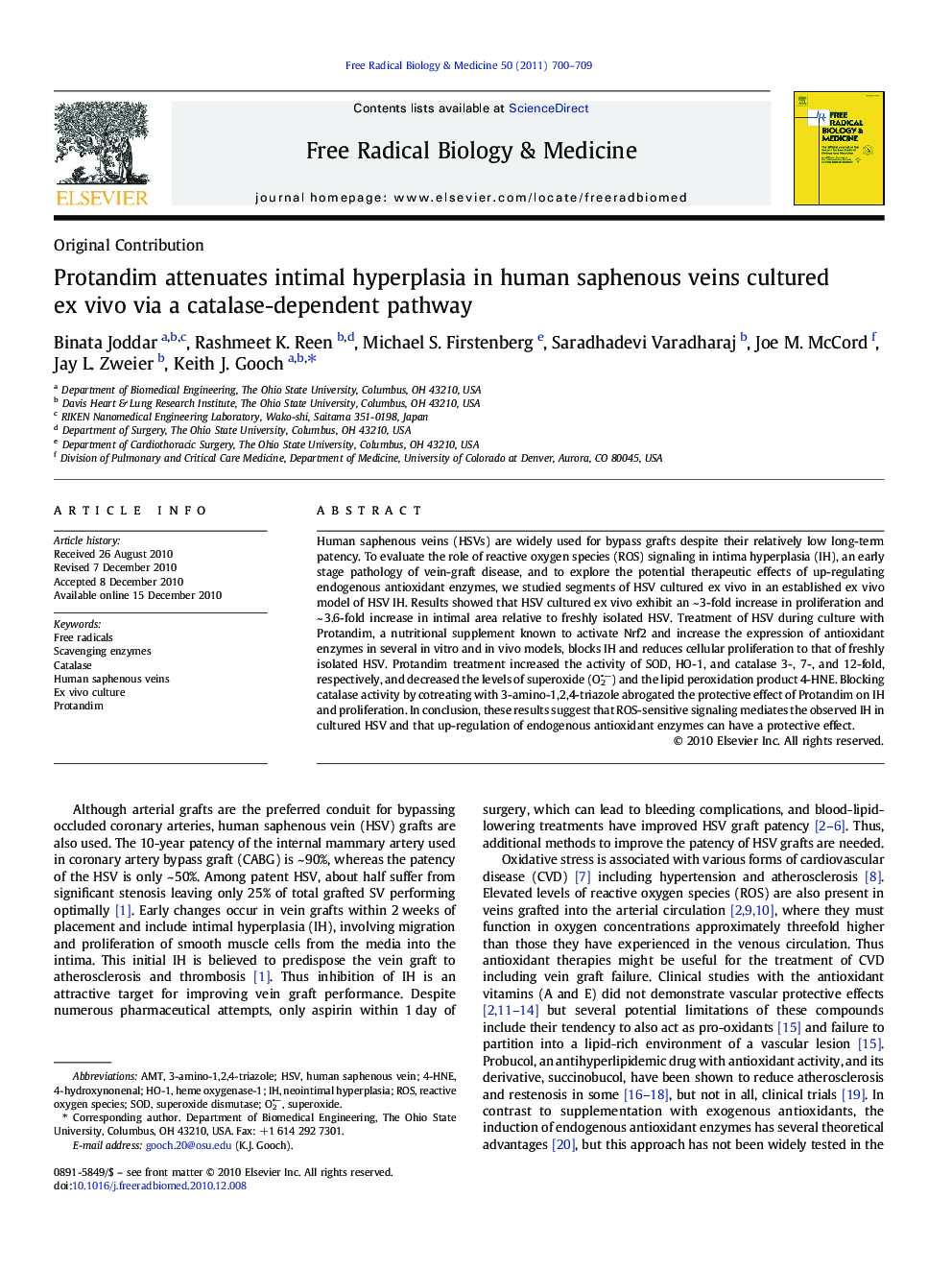| کد مقاله | کد نشریه | سال انتشار | مقاله انگلیسی | نسخه تمام متن |
|---|---|---|---|---|
| 1909226 | 1046713 | 2011 | 10 صفحه PDF | دانلود رایگان |

Human saphenous veins (HSVs) are widely used for bypass grafts despite their relatively low long-term patency. To evaluate the role of reactive oxygen species (ROS) signaling in intima hyperplasia (IH), an early stage pathology of vein-graft disease, and to explore the potential therapeutic effects of up-regulating endogenous antioxidant enzymes, we studied segments of HSV cultured ex vivo in an established ex vivo model of HSV IH. Results showed that HSV cultured ex vivo exhibit an ~ 3-fold increase in proliferation and ~ 3.6-fold increase in intimal area relative to freshly isolated HSV. Treatment of HSV during culture with Protandim, a nutritional supplement known to activate Nrf2 and increase the expression of antioxidant enzymes in several in vitro and in vivo models, blocks IH and reduces cellular proliferation to that of freshly isolated HSV. Protandim treatment increased the activity of SOD, HO-1, and catalase 3-, 7-, and 12-fold, respectively, and decreased the levels of superoxide (O2
• −) and the lipid peroxidation product 4-HNE. Blocking catalase activity by cotreating with 3-amino-1,2,4-triazole abrogated the protective effect of Protandim on IH and proliferation. In conclusion, these results suggest that ROS-sensitive signaling mediates the observed IH in cultured HSV and that up-regulation of endogenous antioxidant enzymes can have a protective effect.
Journal: Free Radical Biology and Medicine - Volume 50, Issue 6, 15 March 2011, Pages 700–709